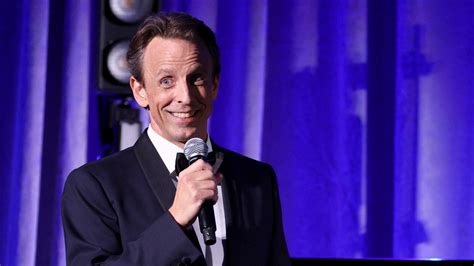
Jessica Biel is reportedly concerned that her friendship with Whoopi Goldberg may be strained following revelations about Biel’s past reservations regarding vaccines, which resurfaced amid a recent discussion on “The View.”
Jessica Biel is reportedly worried that her relationship with Whoopi Goldberg might suffer following the resurfacing of Biel’s past stance on vaccine legislation, a topic that has recently been discussed on “The View.” Biel’s prior activism against California’s Senate Bill 276, which aimed to limit medical exemptions from vaccinations, has been brought back into the spotlight, potentially creating awkwardness and tension between the two actresses.
The concern stems from a 2019 incident where Biel lobbied against the bill alongside Robert F. Kennedy Jr., a prominent anti-vaccine advocate. While Biel later clarified that she is not anti-vaccine but supports informed consent and medical freedom, her actions drew significant criticism and public backlash at the time. The resurfacing of this controversy, particularly in the context of Goldberg’s platform on “The View,” has reportedly left Biel anxious about the potential impact on their friendship.
Sources suggest that Biel values her relationship with Goldberg, respecting her outspoken nature and influential voice. The fear is that Goldberg, known for her strong views on public health and social responsibility, might view Biel’s past actions as irresponsible or misinformed, leading to a cooling of their bond.
The situation highlights the complexities of navigating friendships when differing political or social beliefs come into play, especially in the high-profile world of Hollywood. It also underscores the lasting impact of past actions and the challenges of managing public perception in the age of social media and constant scrutiny.
Background of the Controversy
In 2019, Jessica Biel faced widespread criticism after she publicly opposed California’s Senate Bill 276. The bill, aimed at tightening regulations on medical exemptions for vaccinations, sought to limit the ability of parents to avoid vaccinating their children based on medical grounds. Supporters of the bill argued that it was crucial for protecting public health and preventing the spread of preventable diseases like measles.
Biel’s involvement in the anti-SB 276 movement included attending meetings with California lawmakers in Sacramento and publicly advocating against the bill. Her collaboration with Robert F. Kennedy Jr., a figure widely known for his anti-vaccine activism, further fueled the controversy. Kennedy has been a vocal proponent of debunked theories linking vaccines to autism and other health problems.
At the time, Biel clarified her position in a statement, asserting that she is not against vaccinations but believes in “medical freedom” and the right of parents to make informed decisions about their children’s healthcare. She argued that SB 276 was too broad and could potentially harm children with legitimate medical conditions who might genuinely need exemptions from certain vaccines.
“I am not against vaccinations—I support children getting vaccinations and I also support families having the right to make educated medical decisions for their children alongside their physicians,” Biel stated. “My concern has always been with the process by which exemptions are obtained.”
Despite her clarification, Biel’s involvement with the anti-SB 276 movement drew significant backlash from public health officials, medical professionals, and fellow celebrities. Critics argued that her actions contributed to vaccine hesitancy and undermined efforts to promote herd immunity, which is essential for protecting vulnerable populations who cannot be vaccinated.
Whoopi Goldberg’s Perspective
Whoopi Goldberg’s perspective on vaccinations and public health is generally aligned with mainstream scientific consensus. As a co-host of “The View,” she has often used her platform to advocate for vaccination and debunk misinformation about vaccines. Goldberg has also been a vocal supporter of public health measures aimed at controlling the spread of infectious diseases, including mask mandates and social distancing.
Given Goldberg’s strong stance on these issues, it is understandable why Biel might be concerned about the potential impact of her past actions on their friendship. Goldberg has consistently emphasized the importance of scientific evidence and expert opinions when it comes to matters of public health, and she has often criticized those who spread misinformation or undermine public health efforts.
While Goldberg has not publicly commented on Biel’s past involvement with the anti-SB 276 movement, her general views on vaccinations suggest that she may not view Biel’s actions favorably. The potential for disagreement on such a sensitive and important issue could create tension and strain within their friendship.
Impact on Their Friendship
The extent to which the resurfaced controversy will affect Biel and Goldberg’s friendship remains to be seen. However, sources suggest that Biel is genuinely concerned about the potential fallout. She reportedly values her relationship with Goldberg and respects her opinions, even when they may differ.
The situation highlights the challenges of maintaining friendships in the face of differing political or social beliefs. In today’s polarized society, it is increasingly common for people to have strong opinions on a wide range of issues, and these opinions can sometimes create friction and conflict in personal relationships.
For celebrities like Biel and Goldberg, the added scrutiny of the public eye can further complicate matters. Their actions and opinions are often subject to intense scrutiny and debate, and any perceived disagreement or conflict can quickly become fodder for media speculation and public discussion.
It is possible that Biel and Goldberg will be able to navigate this situation with grace and understanding, maintaining their friendship despite their differing views on vaccinations. However, it is also possible that the controversy will create a rift between them, particularly if Goldberg feels that Biel’s past actions were irresponsible or harmful to public health.
Navigating Differing Beliefs in Friendships
The situation between Jessica Biel and Whoopi Goldberg underscores the broader challenges of navigating friendships when differing beliefs come into play. Here are some strategies that individuals can use to maintain healthy relationships despite differing opinions:
- Focus on Shared Values: Identify common ground and shared values that can serve as a foundation for the friendship. Even if individuals disagree on certain issues, they may still share fundamental beliefs about morality, ethics, or personal values.
- Practice Active Listening: Make an effort to understand the other person’s perspective, even if you don’t agree with it. Ask questions, listen attentively, and try to see the issue from their point of view.
- Respect Boundaries: Recognize that some topics may be too sensitive or controversial to discuss without causing conflict. Respect the other person’s boundaries and avoid pushing them to talk about issues they are uncomfortable with.
- Avoid Judgment: Refrain from judging or criticizing the other person’s beliefs. Instead, focus on understanding their perspective and finding common ground.
- Seek Common Interests: Engage in activities that you both enjoy, regardless of your differing beliefs. This can help to strengthen your bond and create positive experiences together.
- Acknowledge Differences: Accept that you may never fully agree on certain issues, and that’s okay. Acknowledge your differences and focus on finding ways to coexist peacefully.
- Communicate Openly and Respectfully: If you do need to discuss a sensitive topic, do so in a calm and respectful manner. Avoid using accusatory language or making personal attacks.
- Set Ground Rules: Establish ground rules for discussing potentially divisive topics. This could include agreeing to disagree, avoiding personal attacks, or focusing on facts rather than emotions.
- Seek Mediation: If you are struggling to navigate a difficult disagreement, consider seeking the help of a neutral third party. A mediator can help you to communicate more effectively and find a resolution that works for both of you.
- Prioritize the Relationship: Ultimately, the most important thing is to prioritize the relationship over the issue at hand. Remember that friendships are valuable and worth preserving, even if you don’t always agree on everything.
The Broader Context of Vaccine Hesitancy
The controversy surrounding Jessica Biel’s past actions also highlights the broader issue of vaccine hesitancy, which has become a significant public health challenge in recent years. Vaccine hesitancy refers to the reluctance or refusal to be vaccinated despite the availability of vaccines.
Several factors contribute to vaccine hesitancy, including:
- Misinformation: The spread of misinformation about vaccines, particularly online, has fueled skepticism and distrust. False claims about vaccine safety and efficacy can be difficult to debunk and can lead people to question the advice of medical professionals.
- Lack of Trust: A lack of trust in government, pharmaceutical companies, and the medical establishment can also contribute to vaccine hesitancy. Some people may believe that these institutions are not acting in their best interests or that they are prioritizing profits over public health.
- Personal Beliefs: Personal beliefs, such as religious or philosophical objections to vaccines, can also play a role. Some people may believe that vaccines violate their religious principles or that they are unnecessary for maintaining health.
- Past Experiences: Past experiences with the healthcare system, such as negative interactions with medical professionals or adverse reactions to vaccines, can also contribute to vaccine hesitancy.
- Social Influence: Social influence, such as the opinions of friends, family members, and online communities, can also influence vaccine decisions. People are more likely to be vaccinated if they believe that their peers support vaccination.
Addressing vaccine hesitancy requires a multifaceted approach that includes:
- Combating Misinformation: Public health officials and medical professionals need to actively combat misinformation about vaccines by providing accurate and accessible information to the public.
- Building Trust: Building trust in government, pharmaceutical companies, and the medical establishment is essential for overcoming vaccine hesitancy. This can be achieved through transparency, accountability, and open communication.
- Addressing Personal Beliefs: Addressing personal beliefs and concerns about vaccines requires empathy, respect, and a willingness to listen. It is important to understand why people hold certain beliefs and to address their concerns with accurate information.
- Improving Healthcare Experiences: Improving healthcare experiences can help to build trust and encourage vaccination. This includes providing respectful and compassionate care, addressing patient concerns, and ensuring that vaccines are administered safely and effectively.
- Leveraging Social Influence: Leveraging social influence can help to promote vaccination. This includes engaging community leaders, healthcare providers, and other trusted messengers to encourage vaccination within their communities.
Jessica Biel’s Evolving Stance
While Jessica Biel faced criticism for her involvement with the anti-SB 276 movement in 2019, there have been indications that her views on vaccinations may have evolved over time. In recent years, she has been less vocal about her concerns regarding vaccine legislation, and she has not publicly aligned herself with anti-vaccine groups.
It is possible that Biel has come to recognize the importance of vaccination for protecting public health and preventing the spread of infectious diseases. She may also have learned from the backlash she received in 2019 and realized that her actions had unintended consequences.
However, it is also possible that Biel’s views on vaccinations have not changed significantly, but she has simply become more cautious about expressing them publicly. Given the sensitivity of the issue and the potential for controversy, she may have decided to avoid discussing vaccinations altogether.
Regardless of Biel’s current views, the resurfacing of her past actions has the potential to create challenges in her personal relationships, particularly with individuals like Whoopi Goldberg who hold strong beliefs about the importance of vaccination.
Future Implications
The situation involving Jessica Biel and Whoopi Goldberg highlights the ongoing challenges of navigating differing beliefs in a polarized society. As social media and online platforms continue to amplify diverse voices and opinions, it is increasingly important for individuals to develop strategies for maintaining healthy relationships despite disagreements.
The ability to engage in respectful dialogue, understand different perspectives, and find common ground is essential for fostering social cohesion and promoting constructive problem-solving. While it may not always be possible to bridge divides completely, making an effort to understand and respect differing viewpoints can help to build stronger relationships and create a more inclusive society.
The controversy surrounding Jessica Biel’s past actions also serves as a reminder of the lasting impact of public statements and actions. In the age of social media, anything that is said or done can be easily amplified and shared, potentially creating long-term consequences. It is important for individuals, particularly those in the public eye, to carefully consider the potential impact of their words and actions before expressing them publicly.
In conclusion, the reported concerns of Jessica Biel regarding her friendship with Whoopi Goldberg underscore the complexities of navigating differing beliefs, managing public perception, and maintaining relationships in the face of controversy. The situation highlights the importance of respectful dialogue, understanding different perspectives, and prioritizing relationships over disagreements. It also serves as a reminder of the lasting impact of public statements and actions in the age of social media. Whether Biel and Goldberg can successfully navigate this situation remains to be seen, but their experience offers valuable lessons for anyone seeking to maintain healthy relationships in a polarized world.
Frequently Asked Questions (FAQ)
-
What is the main issue in the article?
- The main issue is Jessica Biel’s reported concern that her friendship with Whoopi Goldberg may be strained due to the resurfacing of Biel’s past stance on vaccine legislation and Goldberg’s strong pro-vaccine views.
-
What was Jessica Biel’s stance on Senate Bill 276 in California?
- In 2019, Jessica Biel publicly opposed California’s Senate Bill 276, which aimed to tighten regulations on medical exemptions for vaccinations. She argued for “medical freedom” and the right of parents to make informed decisions about their children’s healthcare, but clarified that she wasn’t against vaccines.
-
Why is Whoopi Goldberg’s perspective relevant?
- Whoopi Goldberg, as a co-host of “The View,” often advocates for vaccination and public health measures. Her strong stance on these issues contrasts with Biel’s past actions, potentially creating tension in their friendship.
-
How did the public react to Jessica Biel’s involvement in the anti-SB 276 movement?
- Jessica Biel faced widespread criticism from public health officials, medical professionals, and fellow celebrities who argued that her actions contributed to vaccine hesitancy and undermined efforts to promote herd immunity.
-
What strategies can individuals use to maintain friendships despite differing beliefs?
- Strategies include focusing on shared values, practicing active listening, respecting boundaries, avoiding judgment, seeking common interests, acknowledging differences, communicating openly and respectfully, setting ground rules, seeking mediation if necessary, and prioritizing the relationship.
-
What is vaccine hesitancy and what contributes to it?
- Vaccine hesitancy is the reluctance or refusal to be vaccinated despite the availability of vaccines. Factors contributing to it include misinformation, lack of trust in institutions, personal beliefs, past negative experiences, and social influence.
-
How has Jessica Biel’s stance on vaccinations possibly changed over time?
- While it’s unclear if Biel’s views have significantly changed, she has been less vocal about concerns regarding vaccine legislation and has not publicly aligned herself with anti-vaccine groups in recent years. It’s possible she recognizes the importance of vaccination or has become more cautious about expressing her views.
-
What broader lessons can be learned from the situation between Jessica Biel and Whoopi Goldberg?
- The situation highlights the challenges of navigating differing beliefs in a polarized society and the importance of respectful dialogue, understanding different perspectives, and prioritizing relationships over disagreements. It also reminds individuals of the lasting impact of public statements and actions.
-
What was Robert F. Kennedy Jr.’s involvement with Jessica Biel in 2019?
- Robert F. Kennedy Jr., a prominent anti-vaccine advocate, collaborated with Biel as she lobbied against California’s Senate Bill 276. Their collaboration fueled controversy due to Kennedy’s views on vaccines.
-
How might this situation affect other celebrity friendships?
- The Jessica Biel and Whoopi Goldberg situation serves as a cautionary tale for celebrities navigating friendships across differing social and political beliefs. It highlights the need for careful consideration of public statements and the potential for personal relationships to be impacted by public perception.
-
What specific misinformation is often spread about vaccines?
- Common misinformation includes false claims that vaccines cause autism, contain harmful toxins, or are unnecessary. Such claims often lack scientific evidence and contradict expert opinions.
-
What role does social media play in vaccine hesitancy?
- Social media can amplify misinformation about vaccines, creating echo chambers where individuals are exposed only to views that reinforce their skepticism. This can lead to increased vaccine hesitancy and distrust in public health recommendations.
-
How can trust in the medical establishment be rebuilt or strengthened?
- Trust can be rebuilt through transparency, accountability, and open communication. Medical professionals can address patient concerns with empathy, provide accurate information, and ensure safe and effective vaccine administration.
-
What are the ethical considerations for celebrities discussing medical issues?
- Celebrities should consider the potential impact of their words on public health and avoid spreading misinformation. They should rely on credible sources and consult with medical professionals before discussing sensitive topics like vaccination.
-
How are public health officials trying to combat vaccine hesitancy?
- Public health officials combat vaccine hesitancy by providing accurate information, engaging community leaders, and addressing personal concerns. They aim to build trust and promote vaccination through transparent and accessible communication.
-
What is the definition of “herd immunity” and why is it important?
- Herd immunity is the protection a community gains when a high percentage of its members are immune to a disease, making the spread of the disease from person to person unlikely. It is essential for protecting vulnerable populations who cannot be vaccinated, such as infants and individuals with compromised immune systems.
-
How can parents make informed decisions about vaccines for their children?
- Parents can make informed decisions by consulting with their pediatrician, reviewing information from reputable sources like the CDC and WHO, and asking questions about any concerns they may have.
-
What is the potential for long-term damage to celebrity relationships following a public disagreement?
- The potential for long-term damage depends on the nature of the disagreement, the individuals involved, and how they handle the situation. Public disagreements can strain relationships and affect public perception, requiring efforts to rebuild trust and understanding.
-
How can individuals respectfully disagree while maintaining a friendship?
- Individuals can respectfully disagree by listening actively, acknowledging different perspectives, avoiding personal attacks, and focusing on shared values. It is important to set boundaries and prioritize the relationship over the issue at hand.
-
What role does empathy play in navigating differing beliefs?
- Empathy is crucial for understanding and respecting different perspectives. By trying to see the world from another person’s point of view, individuals can build stronger relationships and navigate disagreements with greater understanding and compassion.









